Winterization Efforts for Displaced Families in Gaza
Posted in: News
It’s going to rain in Gaza this week. You may ask why this is news. The answer is that rain in Gaza brings a new set of life-threatening challenges for the nearly two million displaced people there who are living in makeshift shelters, tents or damaged buildings. For displaced people in Gaza, rain is not just a natural occurrence. It’s a reminder of how precarious and fragile their lives have become. It’s also a stark reminder of how much harsher conditions have become in Gaza, as the war continues to take its toll this winter.
Our Gaza staff have deep concerns about the harsh(er) conditions families are facing. Below are some of the dangers.
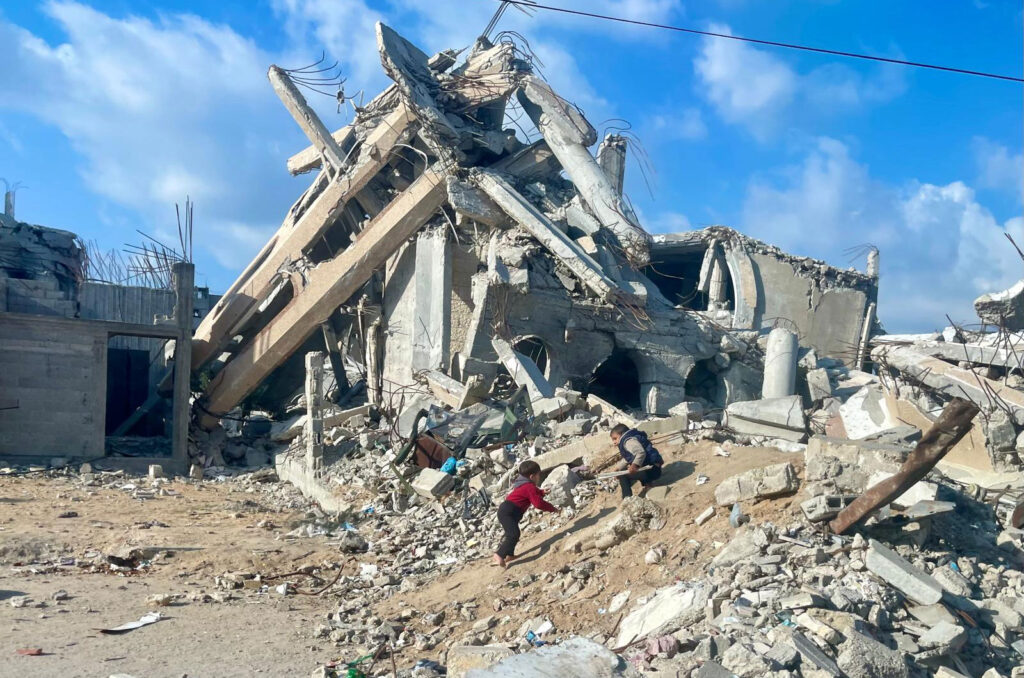

Flooded Shelters and Camps
Most displaced families are living in overcrowded camps or makeshift shelters, where the infrastructure is not equipped to handle rain. Tents and temporary shelters become waterlogged fast and, without proper drainage systems, entire areas easily flood, leaving families exposed to the cold and wet.
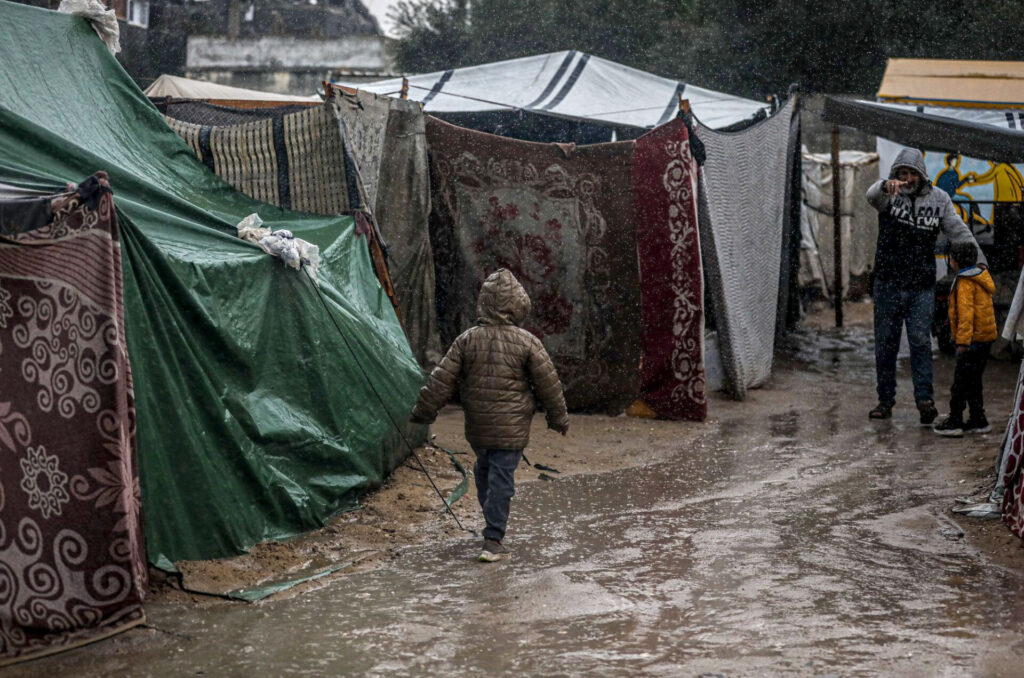

Lack of Protection from the Elements
Tarps, plastic sheeting, and insulation materials are largely unavailable in Gaza, leaving families unprotected when it rains. Water leaks into tents, soaking bedding and personal belongings, as families struggle to stay warm and dry in cold, damp conditions. Their makeshift homes fail to provide the protection needed against harsh winter weather.


Increased Health Risks
Waterlogged conditions significantly heighten the risk of waterborne diseases and respiratory infections. Lacking adequate shelter, warm clothing, or sufficient blankets, displaced people—especially the elderly and children—face greater vulnerability to hypothermia, pneumonia, flu, and other cold-related illnesses. Standing water fosters unsanitary conditions, worsening existing health challenges. In desperation to stay warm, people often start fires near or inside tents, creating dangerous situations that increase the risk of burns and other hazards.


Unstable Ground and Safety Hazards
Heavy rain destabilizes the already fragile ground in tent camps and informal settlements, causing tents to collapse and makeshift drainage systems to flood. The uneven terrain, often littered with debris, turns muddy and hazardous, making movement challenging. Many people in Gaza walk barefoot or wear inadequate shoes, leaving them especially vulnerable to injury.
Increased Mental and Emotional Strain
The constant threat of rain and flooding adds to the emotional toll on displaced people. Living in these conditions day after day, without a sense of security or comfort, leads to heightened stress, anxiety, and trauma, particularly for children and those who have already endured the horrors of conflict.


Responding to Winterization Needs in Gaza
Anera is urgently responding to the critical needs of displaced families in Gaza who are enduring extreme cold and flooding in their makeshift shelters. As winter conditions worsen, Anera’s efforts are focused on providing essential support to keep families safe and healthy through the harsh season.
Shelter Improvements
To protect families from the harsh winter elements, Anera is distributing tarps to prevent rainwater from seeping into tents. In addition, insulation materials, such as inner linings for tents, are being provided to shield families from the biting cold winds that sweep through the camps. Families who have been forced to use blankets to cover their tents are left vulnerable without enough warmth inside, making these interventions critical for their survival and well-being.
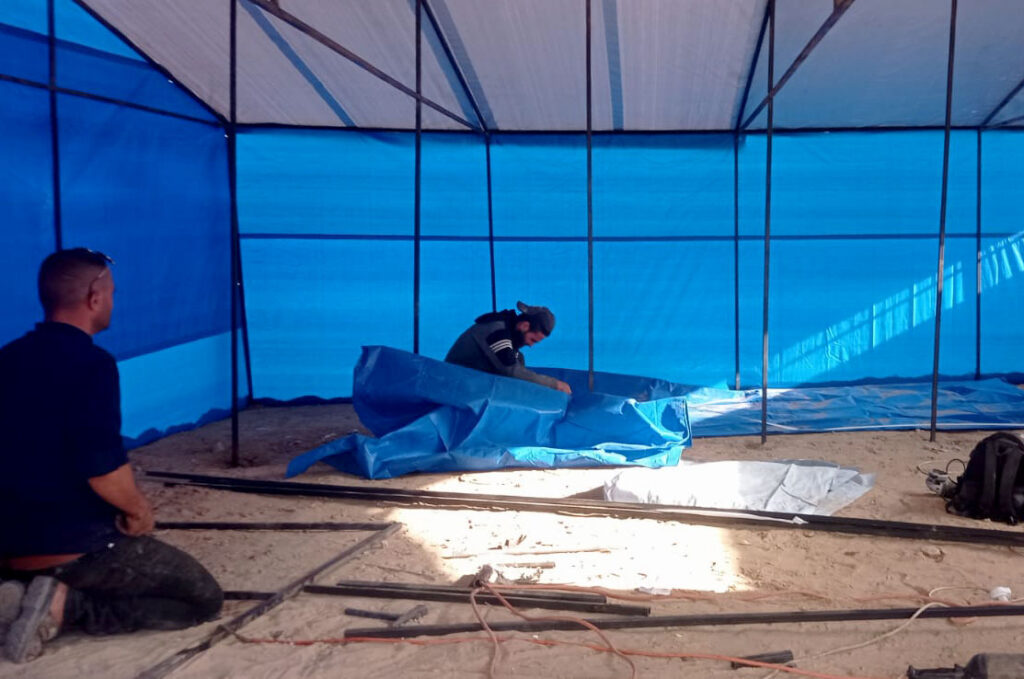

Essential Winter Items
There is a dire need for warm clothing and bedding to help families endure the cold temperatures. Anera is addressing this by distributing jackets, hats, scarves, gloves, and thermal tracksuits that families can wear to stay warm, especially at night. Shoes and boots are another urgent requirement, as many people are walking barefoot or in worn-out shoes that provide no protection from the cold, wet ground.
To further support families, Anera is providing comprehensive winterization tent kits. These kits include thermal sleeping pads, additional blankets, and inner tent linings for extra insulation, ensuring that families can sleep more comfortably and stay warm despite the winter’s challenges.
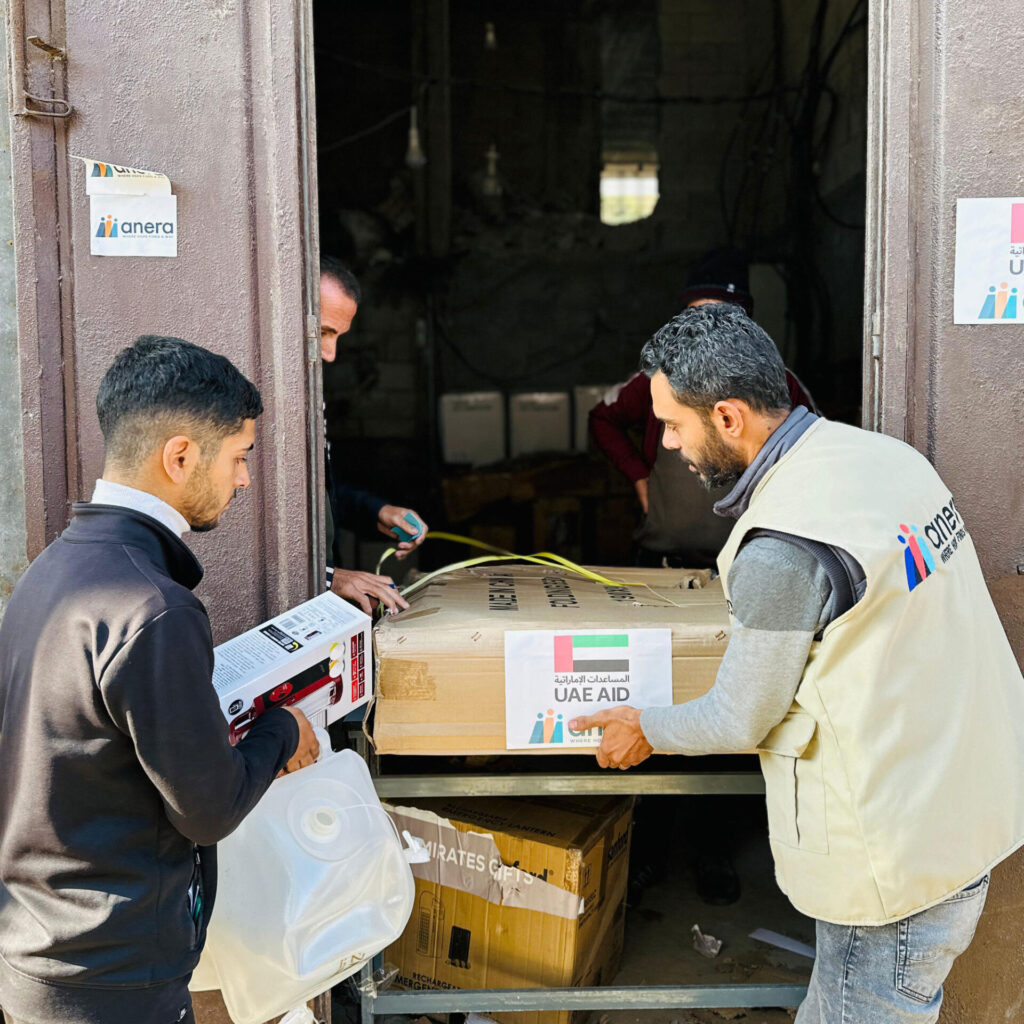

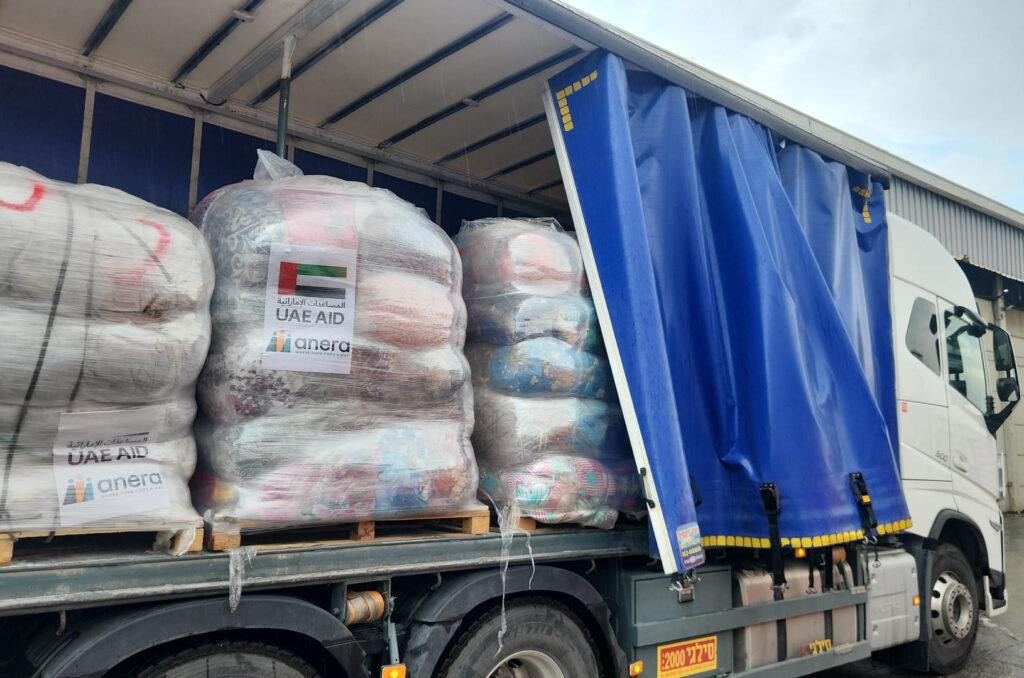

Sustaining Water Access During Winter
The challenge of maintaining a steady water supply during the winter months is immense, but it is vital to keeping displaced communities healthy. Anera has been providing water to between 20,000 and 30,000 people at communal locations across Gaza for several months. This essential service continues throughout the winter to ensure families have access to clean water for drinking, hygiene, and cooking, helping prevent the spread of illness during the colder months.
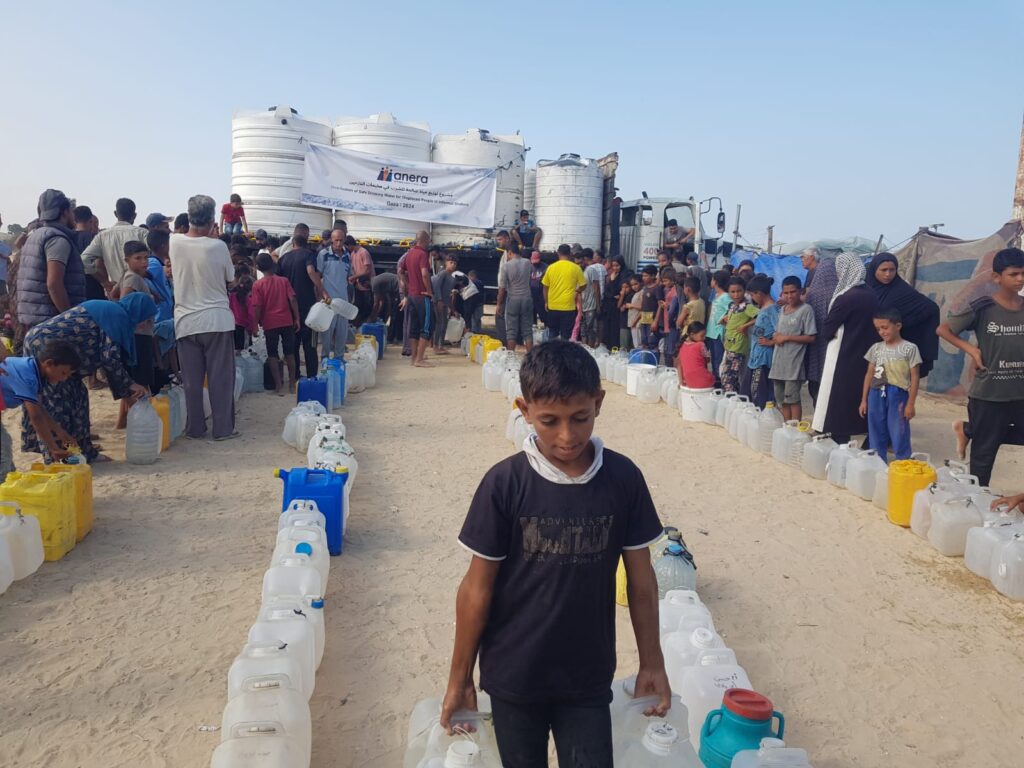

Through these combined efforts, Anera is striving to mitigate the harsh impact of winter on vulnerable families in Gaza, ensuring they have the shelter, warmth, and water they need to survive during these difficult times.
You Can Help!
Anera’s donor community is committed to ensuring that families in Gaza are not left to face the harsh winter alone. Through your support, we can provide the necessary materials and services to help them survive these difficult months.
OUR BLOG
Related
In this log, Anera provides updates on unfolding war in Palestine and our response. Please stay tuned here for the latest information. To subscribe for weekly updates via SMS on our response in Gaza, text GAZA to 1-866-549-0055. Questions? See…
I’m from Bethlehem, Palestine. This is my home. My family has been rooted here for generations. I have spent my entire life in this city—47 years born and raised. I’ve been with Anera since 1999, marking 25 years as of…
Standing in the heart of Tyre, a city once full of life and history, I felt the weight of the devastation here, pressing down like the rubble that now defines its streets. As my team and I walked through the…

